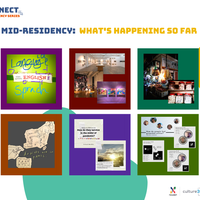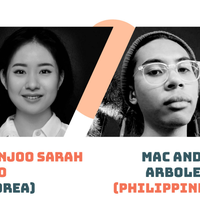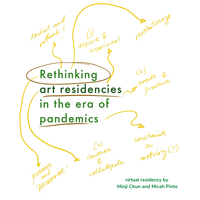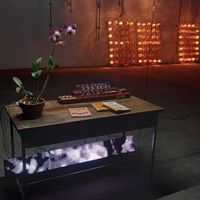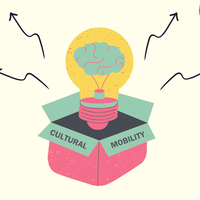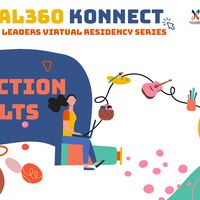Virtual360 Konnect | Artists’ Survival in the Midst of Pandemic
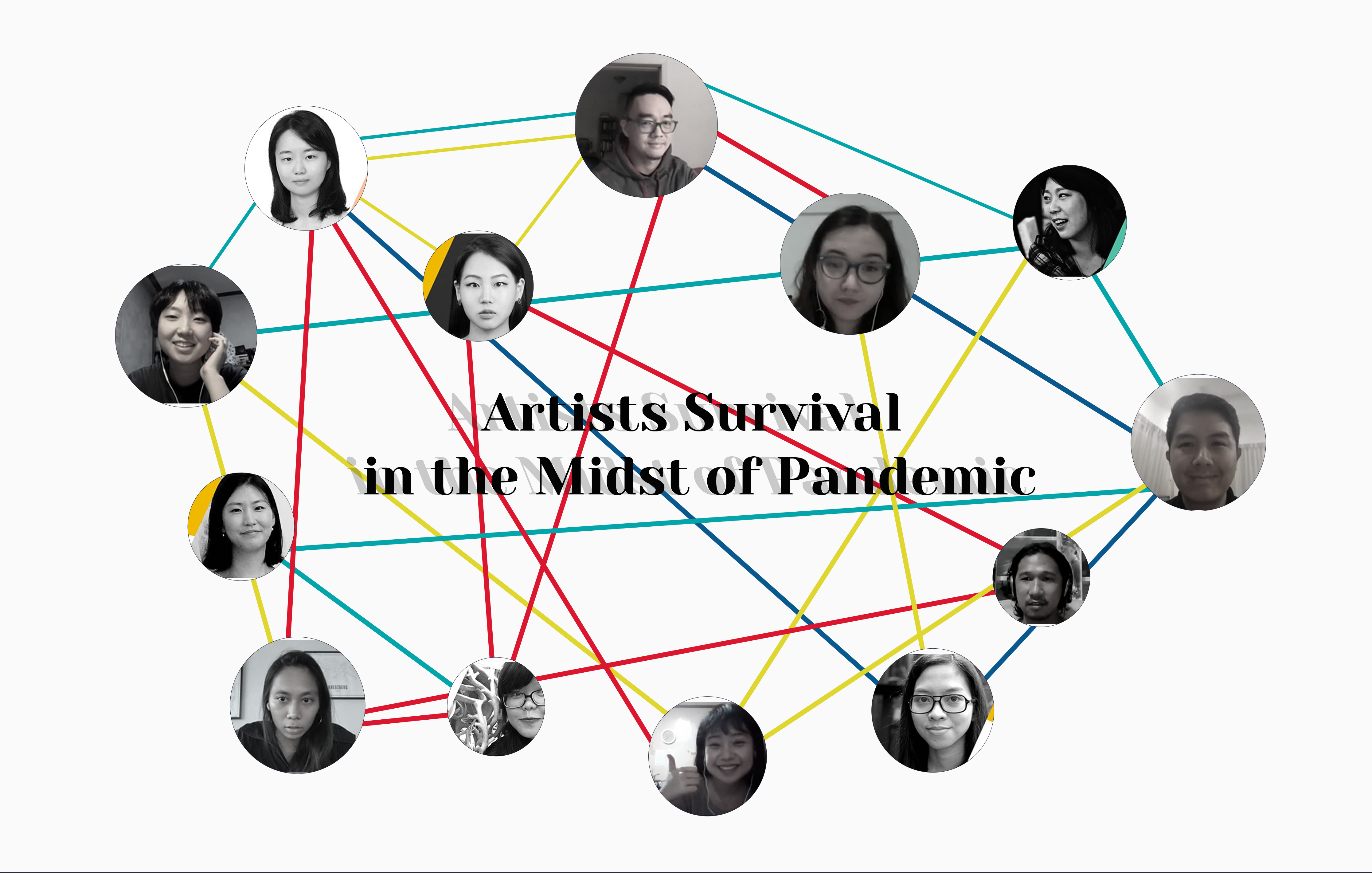
Interviewees:
Sarah Bonjoo Koo, South Korea
Faiq Airudin, Brunei Darussalam
Robby Ocktavian, Indonesia
Kathleen Ditzig, Singapore
June Yuwol Chung, South Korea
Jade Sunok Park, South Korea
Soe Yu Nwe, Myanmar
Jason Wee, Singapore
Micah Pinto, Philippines
Minji Chun, South Korea
Mi Seok Huh, South Korea
Dian Arumningtyas, Indonesia
Kim Gahye, South Korea
Benedikta Swasti Renaningtyas and Joshua Eka Pramudya, both artists from Indonesia collaborated through Virtual360 Konnect – Emerging Arts Leaders Virtual Residency Series. The pair embarked on a research piece that mapped out the challenges that artists from Southeast Asia and Korea are going though during the Covid-19 pandemic, and the new opportunities that emerged from those difficulties.
Many artists and cultural professionals have made adjustments to survive the pandemic – converting their homes to production studios, limiting their work to desk research, and more crucially, changing the way they communicate. For most people, shifting from traditional to digital media is already a huge task, technologically. Communicating purely digitally posed even bigger challenges. Nevertheless, many artists persisted and continued to collaborate to support each other. In this article, we share the experiences of artists from several countries we interviewed during the virtual residency.
Challenges in change
Robby Ocktavian, a sound artist and conventional painter from Indonesia, said that the pandemic led him to many changes in the way he presented his ideas. He faced difficulties in online rooms as these provide less sensory stimulation than face-to-face meetings.
For other artists, visiting work studios was not allowed due to government mandated lockdowns. Soe Yu Nwe, a sculptor from Myanmar who usually travels around the world to work on large-scale clay-based ceramic sculptures, now draws and paints on a much smaller scale, from her bedroom. Likewise, June Chung, who was supposed to hold an exhibition in Germany, had to return to her home country South Korea. She chose to use QR codes to present her work, which produced a more comprehensive outreach.
Sarah Koo, an illustrator from Korea who lives in the Philippines, feels difficulties in finding art materials due to the restrictions. Sarah also changed her way of working by switching to digital illustrations. However, Faiq Airudin, an art worker from Brunei Darussalam who creates interactive artworks based on collaboration, realizes that many companies no longer want to spend on creatives and prefer to focus on videography and animation works. The condition encourages Faiq to look for new opportunities to present and share his work with fellow creatives. In July, Faiw co-organized an exhibition titled "Contoh" in a creative space, which was the first ticketed art event after the removal of restrictions in the country.
Digital media as new public media
Public places and stages have become unsafe places to gather to enjoy art. Jade Park, a performing artist from South Korea, innovated an art residency that she co-manages by turning it into a virtual event. In this residency, she collaborated with artists from around the world to carry out simultaneous art experiments with various online media.
Art galleries have asked their employees to work remotely. Dian Arumningtyas, a manager for a commercial gallery in Bandung, Indonesia, has experienced this case. Dian does not face many difficulties shifting from working in a physical space to online, but measuring remuneration becomes difficult for online work. According to her, people tend to waste their time working from home.
For researchers who frequently do local research, research methods shifted to digital such as video conferencing and email. Mi Seok Huh, an assistant curator for the Seoul Mediacity Biennale, revealed that finding a balance between the many possibilities of digitizing artworks is the biggest challenge she experienced.
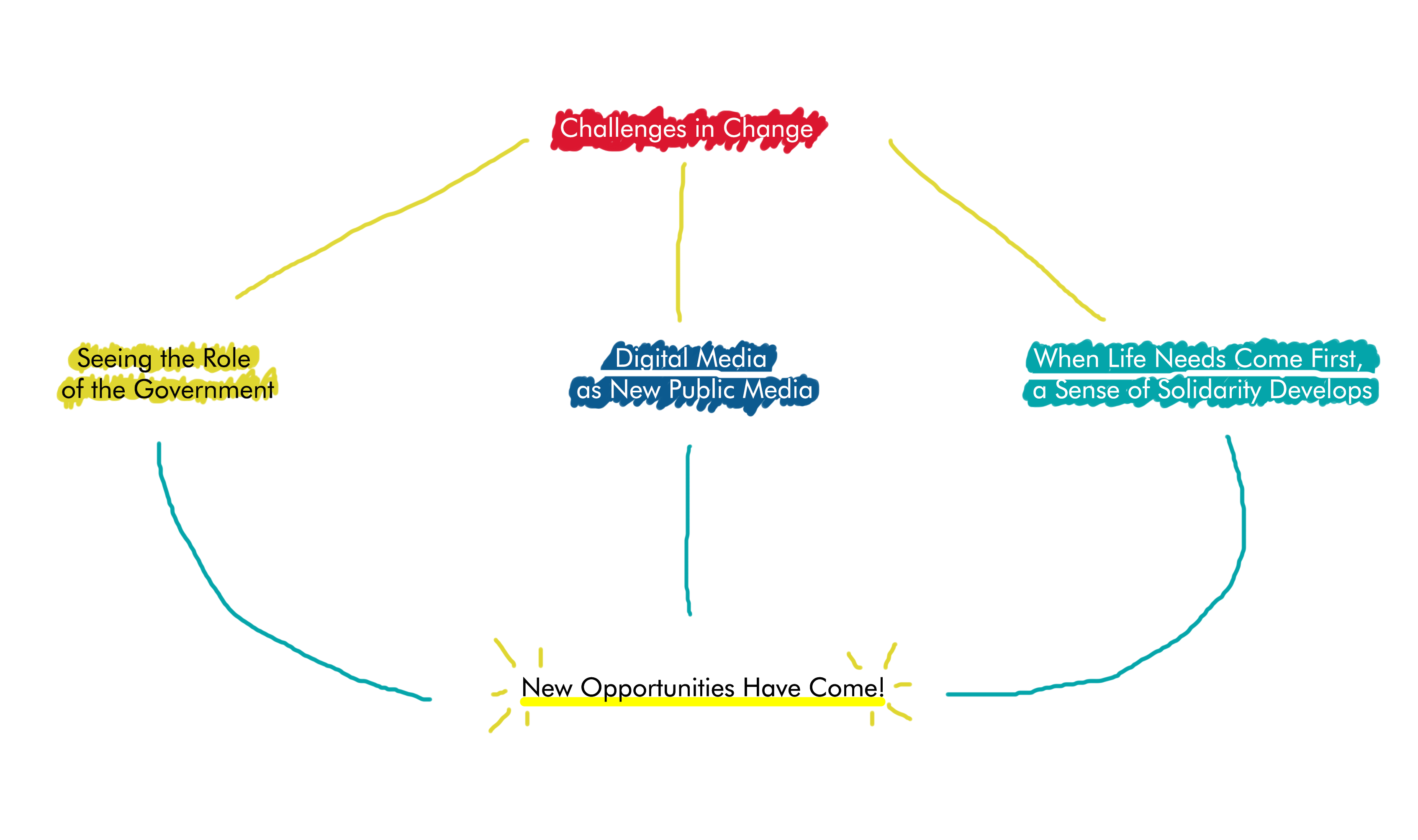
When the need to protect lives come first, a sense of solidarity develops
It is undeniable that protecting and preserving lives is the utmost priority in this pandemic. In this pursuit, a sense of solidarity to support each other in these trying times has naturally developed. Collaboration helps to strengthen and support each other. Art communities face challenges in finding ways to continue collaboration works, as experienced by Filipino arts manager Micah Pinto with the collaborative arts community in the Philippines, Para Sa Sining. This community has mostly migrated to the digital world and created projects that are relevant to their current condition, as people prioritize health and safety today.
Jason Wee, founder and director of Grey Projects, a non-profit artists' space in Singapore that serves as an art library and residency space, share the shifting of priorities from exhibition-making to addressing urgent needs. Collaborating with four other art spaces in Singapore, Grey Projects has created a mutual aid program. This program focuses more on care and life necessities than on productivity or merit by providing spaces and equipment, mental health counselling, pen pal programs between artists and writers with kids and elderly in need, as well as documenting friendship chains across art sectors and art forms as ways to express mutual concern.
Kim Gahye, who works in public relations for a private company in Gwangju, South Korea, said that creative activities are becoming harder to organise as artists have to defend their lives. Gahye observed that artists who do more work to sustain their lives find it difficult to give time and energy to produce creative works. The perception of solidarity is also becoming broader, not just about helping, but about asking for help and staying put.
Seeing the role of the government
Government-affiliated art agencies in South Korea are trying to keep exhibitions running virtually by turning the industry to virtual reality and digital video, which can be accessed from mobile devices or computers. In addition, the Korean Arts Council and the Seoul Foundation for Arts and Culture also provide assistance to artists affected by COVID-19. Minji Chun, a South Korean art curator and writer, was one of the beneficiaries. However, Minji revealed that the aid raised criticisms that artists are too dependent on the public funds.
Kathleen Ditzig, a Singaporean curator, reported that relative to other places in the world, creatives in Singapore are lucky because the state has provided a robust support system for artists and creative practices. There has been more state commissioning and policies that look to transition the arts sector to the digital realm.
New opportunities Have Come!
The pandemic experience has spurred people to reflect on and priorities their essential needs. Even so, new opportunities continue to emerge such that art will continue to be one of the pillars that support people's life.
This article is part of a series of articles written by the participants of Virtual360 Konnect - Emerging Arts Leaders Virtual Residency Series, an online cultural exchange and capacity building initiative developed by the Asia-Europe Foundation (ASEF) and the ASEAN Foundation through KONNECT ASEAN. Over a period of one month, 20 emerging art leaders from Korea and 5 countries of the ASEAN region (Brunei Darussalam, Indonesia, Malaysia, Myanmar, Philippines and Singapore) collaborated in pairs on the theme of international cultural exchange in the Covid-19 era.
Joshua Eka Pramudya
Joshua Eka Pramudya is a music composer and teacher from Jakarta, Indonesia. In July 2019, he collaborated with Gandhi Bramayusa and Yoanita Yosa Nugraha in a collective performance entitled “X-Karta”, an art performance which wants to convey a cultural mission to preserve the cultural traditions of Indonesia’s cultural heritage. He is teaching music at SD Kristen IPEKA Plus BSD, an elementary school that applies integrated learning to their students. With the Kodály method, students are expected to be able to actively respond to music with motoric movements, so children can learn music easier.
Benedikta Swasti Renaningtyas
Benedikta Swasti Renaningtyas is a young film producer based in Yogyakarta, Indonesia. She enjoys her interest in art to participate in various art events and producing art mostly in the form of films and videos. She graduated from Indonesian Institute of the Arts Yogyakarta in 2020 with a Bachelor’s Degree in Film and Television. She has worked as an assistant for the renowned Indonesian film producer, Siska Raharja, for Siska’s production house Elora Films in 2018. She started to take on the role of producer since 2017, worked with young director Afif Fahmi on short documentary films such as Human vs Elephant (2020) and It’s Raining (2018) which gained recognition in various international and domestic film festivals like Sjón International Anthropological Film Festival (Denmark), Strasburg Film Festival (USA), and Festival Film Dokumenter (Indonesia).
Similar content
18 Oct 2020
posted on
21 Sep 2020

